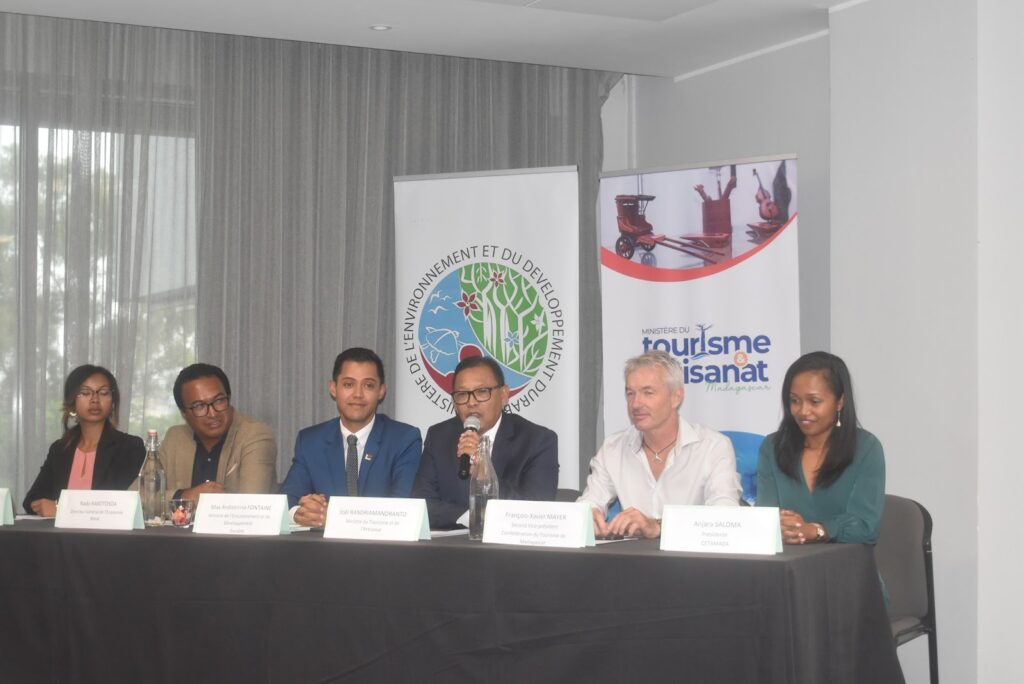| The presentation of the interministerial decree was held at the Radisson Blu Ambodivona. |
Madagascar is strengthening the protection of its megafauna, real tourist attractions popular both for seaside activities and ecotourism.
An interministerial decree, signed between the Ministry of Tourism and Crafts, the Ministry of Fisheries and the Blue Economy, as well as the Ministry of the Environment and Sustainable Development, was presented yesterday in Ambodivona. The text establishes the various provisions and regulations to be followed by boaters and nautical operators who observe marine megafauna. It applies to all marine megafauna, including marine mammals, whale sharks and sea turtles.
According to the Minister of Tourism and Crafts, Joël Andriamandranto, “as part of our strategies, we work with specialized travel agencies who direct their customers to Madagascar to observe whales. It’s a niche market.” However, commercial marine megafauna observation activities tend towards mass tourism. For example, the population of whale sharks in Nosy Be generates nearly 96 million ariary per year, or around five hundred individuals each bringing in $40,000 annually thanks to commercial observation activities in their natural environment.
“This activity constitutes a significant economic development lever for the coastal areas of Madagascar,” estimates Anjara Saloma, president of the NGO Cétamada, involved in the application of this text.
Code of conduct
To guarantee respectful observations of these species, the order is accompanied by observation charters summarizing the code of good conduct. Among other measures, the observation of marine megafauna must be done aboard small boats with a maximum power of 500 horsepower, accommodating no more than twenty people. Nocturnal sea trips are prohibited, as is the dumping of substances harmful to the marine environment and the feeding of marine species. During observations at sea, it is strictly forbidden to swim, touch animals or practice water activities. In addition, it is required to maintain a minimum distance of 100 meters and not to exceed one hour when observing an adult whale.
“These measures, integrated into the promotion of seaside tourism and the blue economy, are part of the new blue ecotourism strategy developed by the ministry,” underlines Joël Andriamandranto.
Maminirainy
